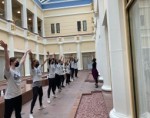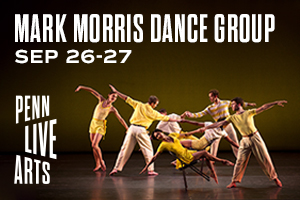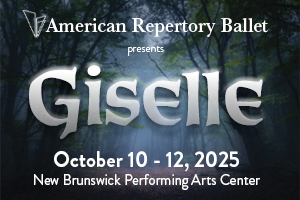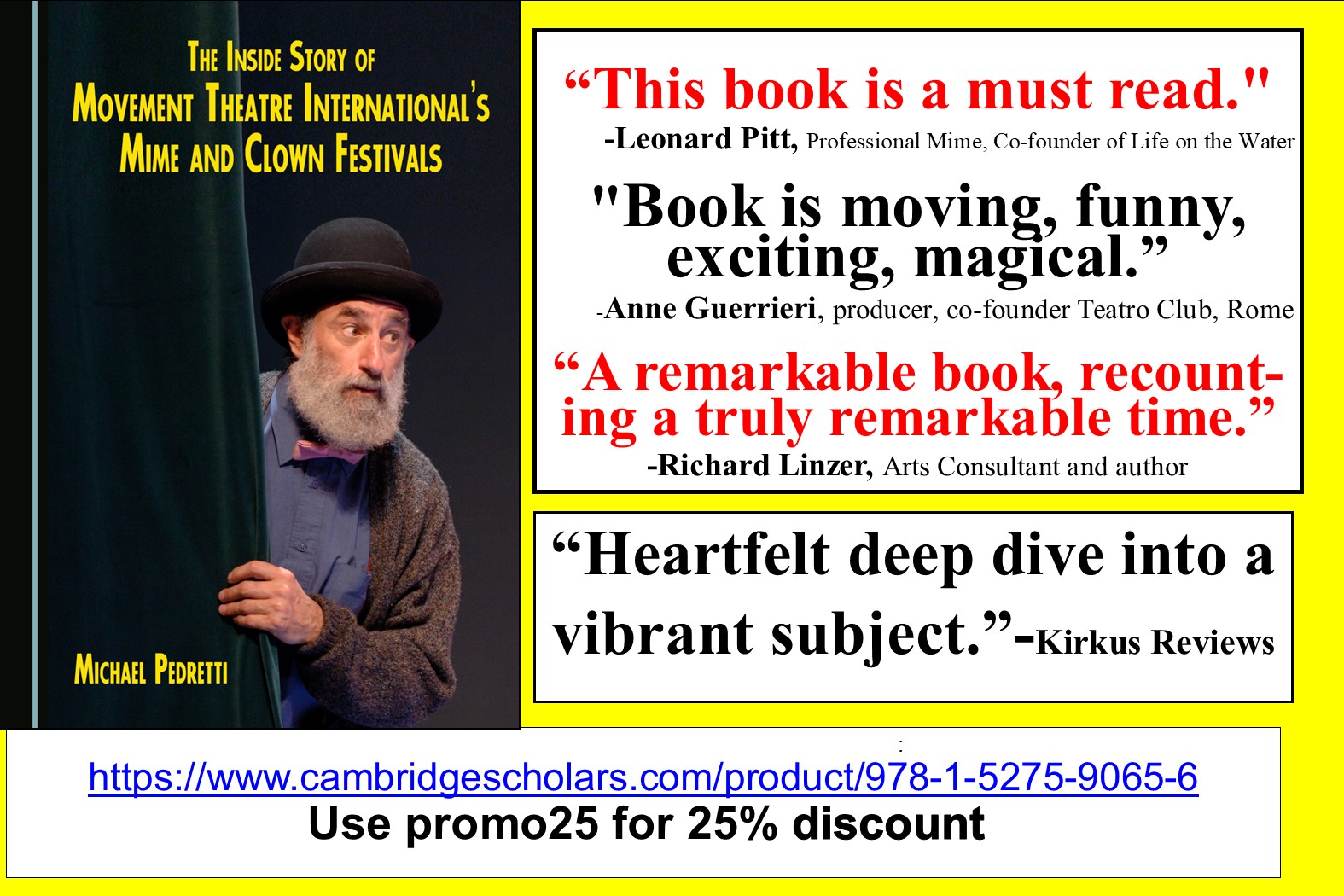
What is Professional Dance? DANCE/USA, philly dance
By Ellen Gerdes
DANCE/USA, with a mission to be a DANCE/USA and I were born in the same“national voice for professional dance,” held year. I started attending dance classes at
its annual conference in Philadelphia for the age four. When I graduated from college, I
first time this June. The greatest potential hadn’t the foggiest idea what it meant to be
for any conference is that like-minded a professional dancer. But even so, I was
members of a community can share research certain I wasn’t good enough. I had this
and conversation. Breakout sessions image of sculpted bodies in national touring
focused on arts administration and companies.
advocacy, including discussions on the
relationship between executive directors and As I prepare for a move from Philly to LA, I
artistic directors, what presenters are looking find myself reflecting on all that five years
for, fundraising, collective business models, in the Philly dance scene has taught me.
and racial diversity in the arts. Dance as a profession is multiple jobs
sustained by commitment, self-reflection,
In the opening plenary, MacArthur Fellow risk-taking, multi-tasking, and yes,
Aaron Dworkin spoke from his perspective funding...but most importantly, the support
as Founder/President of the Sphinx Organization, of a community. It is color-coded
which provides access to classical music schedules, doodle polls, and collaborative
education in Detroit and Flint, Michigan, discovery. And as Greg Holt said to me
and runs two free summer performance recently, “It isn’t about talent; it’s about
academies for youth. He sees a direct disposition.”
impact of his work in increased numbers of
classical musicians of color in the nation’s It is in Philly where I have been able to do
orchestras. This talk occurred during the all of my work through dance. On any given
same week that the Philadelphia school day, I do some of the following: teach dance
district laid off 66 itinerant instrumental to children or college students, go to
music teachers who teach at 190 schools. In rehearsal, take class, perform, write about
light of Dworkin’s talk, this news is heart- dance, grade papers about dance, read
breaking; like many others, I began learning critical writings on dance, and see shows.
music in the instrumental and choir I often change clothes in public bathrooms
ensembles of public schools. The impact of and make lesson plans on trolley rides.
these programs is not simply numerical. THIS is my profession. And so many of you
reading here do the same. Add in
Philadelphia’s turn hosting the DANCE/USA choreographing, marketing, administrating,
conference showcased local body-working, video-editing, producing,
companies/artists to over 500 dance and web-designing. And bartending!
professionals. The performance committee THIS is being a professional dancer.
(Lora Allen, Terry Fox, Rachael Glashan,
Lela Aisha Jones, Olive Prince, Deneane One drawback of all my multiple roles (I
Richburg, Dara Schmoyer, and Judy don’t have the space here to address the
Williams), acknowledged the challenge of tragic lack of health insurance and living
their task and highlighted their vision to wages for dancers) is that it can feel lonely.
choose “companies who have been making One exciting benefit of the conference for
dance in, and bringing national attention to, me was the chance to eat lunch with dance
Philadelphia as a dance hub for a substantial friends whose schedules never align with
number of years.” The committee also mine. We need this time. Dustin Hurt and
notably created several lottery slots for Anna Drozdowski of thirdbird agree: “We
emerging artists. don't see each other enough, with our big
country and our small field (with our even
The Philadelphia dance community is tinier segment nestled within that).” So
actually a collection of dance communities. they hosted a table talk. Anna declared it
I enjoyed the multi-authored programs and a "no bitching allowed” session, and so
viewing new bodies on stage—seeing past we talked...for 2 hours...about marketing,
my own immediate dance circle. Some programming, audience development,
highlights: Elba Hevia y Vaca and KC potential reach of art, fundraising, and
Chun Manning explored the use of the body community. Take a look at curator Michele
as archive via flamenco and post-modern Steinwald's vision for presenting:
dance. The Lady Hoofers proved with empathy, community, and dialogue.
textured polyrhythms and precise
synchronization that they are a new, driving Joan Myers Brown, Brenda Dixon
force. Pew fellow Raphael Xavier and Jery Gottschild, Lela Aisha Jones, and Deneane
Valme investigated breaking improvisation, Richberg also hosted a much-needed
which made me eager to see more of discussion. Myers Brown, awardee
Xavier’s research. The men of Voloshky at this year’s conference, spoke of the
Ukrainian Dance Ensemble bounded while barriers to ballet that she faced as a black
the women stepped in symmetrical formations. woman. In 1988, she founded the
International Association of Blacks in
Although the two conference performances Dance because black dance companies’
privileged proscenium stage works, the needs were not being met by dance
opening reception Wednesday night featured organizations. An open conversation
improvised site-specific work at the new focused on the still-segregated ballet
Barnes Foundation Museum. Ann Marie- world and “big name” companies; in a
Mulgrew’s Dances for Imaginary Places circle, participants stood up to voice
(The Umbrella Dance) and Merian Soto’s questions of access, tokenism, marketing,
Branch Dance Practice from SoMoS and training. It was just a beginning—a
beautifully engaged with the evening light, group admitting that we are not living in a
outdoor sculpture, grass, trees, and water. post-racial society. Choreographer Merian
Unfortunately, performances by Kun-Yang Soto said she was troubled that the social
Lin/Dancers and Tori Lawrence + Co. were change narrated by the opening plenary
lost in the crowded reception of those seemed like a new idea. Soto: “Discussions
networking inside. on racism and imagining our future feel
urgent; we must deepen these. Let’s
Like any conference, registration costs can brainstorm TOGETHER.”
be prohibitive. Several local independent
artists attended thanks to scholarships At the conference, I wished for movement
generously offered by DANCE/USA, but a breakout sessions where we could learn
common criticism I heard is that the about one another as movers. I think of my
conference neglected the needs of such own enriching experiences teaching,
artists. (DANCE/USA’s national roster is learning in class or in a community,
made of 501c3 companies with expense rehearsing—dance experiences that
budgets greater than $100,000.) Self- are collective, social, and embodied. Many
producing artists, smaller companies, and of my moving moments in dance have
individual artists/administrators/presenters happened in Philly classrooms, where I
pushed their way into conversations. One have seen huge shifts of energy and smart
artist wrote: “I felt alienated, marginalized choreography. In my experience, K-12
and craving acknowledgment of the very dance education is not just about building
real, challenging and prevalent situation I future audiences (please!), but rather an
find myself in as an individual artist forging acknowledgment of children's strength,
my own path.” creativity and cultural knowledge. Fired
up by the keynote speaker, Lois
Philadelphia asked DANCE/USA to broaden Welk is excited for a conversation on
its view of professional dance. The listing free dance education in Philly’s schools.
of Dance Around Town events, unsponsored
by the conference and happening Philly is a city where dancers can
concurrently, integrated some self-producing collaborate and challenge one another; yet
artists. Illstyle and Peace Productions used we are not immune to race/class/aesthetic
Dance/UP’s portable floor for a hip-hop hierarchies. What existing divisions can we
performance/demonstration at City Hall. critique? What are the connections we can
Thirdbird’s triple bill Show or Tell find? The conference made me think a lot
represented an “experimental” aesthetic not about supposed classical/postmodern
seen elsewhere. Forestillinger performed divisions. I admired Gabrielle Revlock’s
by Club Fisk (Denmark) made me laugh so dancing in Meg Foley’s piece Utah...
hard I cried! Site-specific work (which thinking, “Look at all the ‘classical’ training
seems to me a hallmark of Philadelphia her body has to have for it to be placed
dance) was represented by Alie Vidich’s and tossed about so matter-of-factly.”
Invisible River. (See Whitney Weinstein’s
response here). PA Ballet, although a large- So what are the dialogues you are excited
profile company, was also listed in the about? As for me, I’ve had the chance to
Dance Around Town options. It was cover three conferences (Congress on
exhilarating to see the sheer number of Research in Dance, Society for Dance
bodies on-stage in William Forsythe’s History Scholars, and DANCE/USA) in
Artifact Suite. (See Kirsten Kaschock’s Philly, and I would love to see more
response here). Finally, because the overlap between these sub-sets of the
performance committee was constrained to dance field. I know many Philly dancers
venues that could seat large audience whose work reaches to all three spaces.
numbers, the Performance Garage donated
space for a late night show by self- Thank you, Philly dance, for teaching me
producing artists working in African how to define success for myself, for re-
diasporic, post-modern, ballet, and aerial defining what it means to be virtuosic,
idioms. Whenever there is a selection process, and for daring to start so many
something is left out. As Lois Welk said conversations...
before one concert, “Philadelphia is a robust
and diverse dance city. This is only the tip
of the iceburg.”
As someone who is about to leave Philadelphia, I found the week of dance a wonderful send-off in its breadth of performances: Philadelphia dance is multiple genres; Philadelphia dance is highly-funded, long-standing institutions; Philadelphia dance is recent college graduates testing out their choreographic chops; Philadelphia dance is grassroots curation and collective art-making. Philadelphia dance is potential dialogue, proposed and percolating, if not yet fully realized.
Editor's Note: While this article appears to be correctly formatted in our uploading system, readers have reported formatting issues. We apologize for any glitches you may have encountered.
Editor's Note: A correction has been made to the original to reflect that scholarships to the conference were funded by DANCE/USA, the national organization, and administered by a local committee.
By Ellen Gerdes
July 11, 2013










